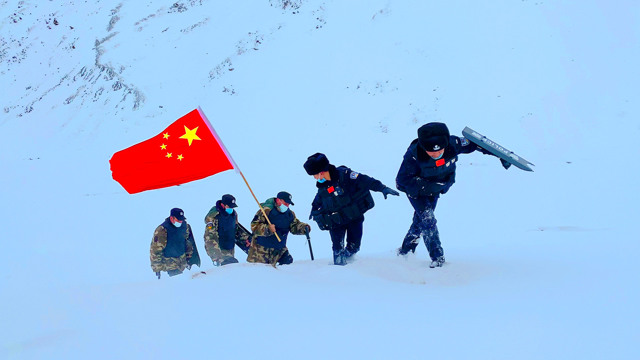Even if we have not yet arrived at the Cold War, the current situation is beginning to remember it seriously. On March 22, relations between China and Western countries experienced an escalation in the ever less muffled clash over the fate of the Uyghurs in western China.
In coordinated diplomatic action, the European Union, the United Kingdom, the United States and Canada have announced individual sanctions against Chinese officials involved in the repressive maneuver against the Uighurs.
Beijing’s reprisals against Europe immediately came, with sanctions imposed on ten leading figures, including five MEPs (including the French Raphaël Glucksmann and the German green Reinhard Bütikofer, president of the parliamentary delegation for relations with China), as well as a research institute and a parliamentary association.
It is difficult to calm down
A paradox emerges in the Chinese response. European sanctions target people directly linked to the repression in Xinjiang, the security apparatus, the state economic machine and the Chinese Communist Party. The Chinese response, on the other hand, focuses on people who are critical of Chinese politics and consequently on their freedom of expression as parliamentarians, researchers or citizens, without reference to specific acts.
There is evidently a symbolic value in individual sanctions. Depriving Raphaël Glucksmann or another deputy of the opportunity to travel to China will not prevent him from living. The member of the Socialist Group in the European Parliament, particularly eloquent in defending the cause of the Uyghurs, even boasted about Twitter on March 22.
It is useful to know that these are the first European sanctions against China after the arms embargo imposed in the aftermath of the 1989 Tiananmen Square massacre, just as Beijing’s response is unprecedented. Imposing sanctions is easier than lifting them, which means a return to calmer waters will be difficult.
New ideological rift
On the other hand, China, by specifically hitting the European parliament, has compromised the ratification (which already promised to be problematic) of the Sino-European treaty on investments negotiated in December. Numerous deputies had criticized the inconsistency of Chinese commitments on the subject of forced labor imposed on Uyghurs.
We are not yet in the cold war, because it is not possible to pass in the blink of an eye from a globalized world in which China occupies a primary role in economic production to a world of latent war, where the blocks are separated.
But we must not be under any illusions. On March 22, we witnessed exceptional coordination among Westerners to strike Beijing. It is the first sign of Joe Biden’s commitment to reinvigorating the politics of alliances. Meanwhile, the Chinese staged a meeting with Russian Foreign Minister Sergei Lavrov in the idyllic setting of Guilin, southern China, to show a united front after last week’s stormy Sino-American summit in Alaska. One of the themes of the meeting? How to do without the dollar.
A slide towards a new ideological rift is underway, and the Europeans who hoped to avoid it find themselves dragged in spite of themselves. China, with its intransigence and the new radicalism of its diplomacy, is pushing the Europeans to take sides. At this point it is difficult to imagine that anything could stop the deterioration of relationships, at least in the short term.
(Translation by Andrea Sparacino)
.
